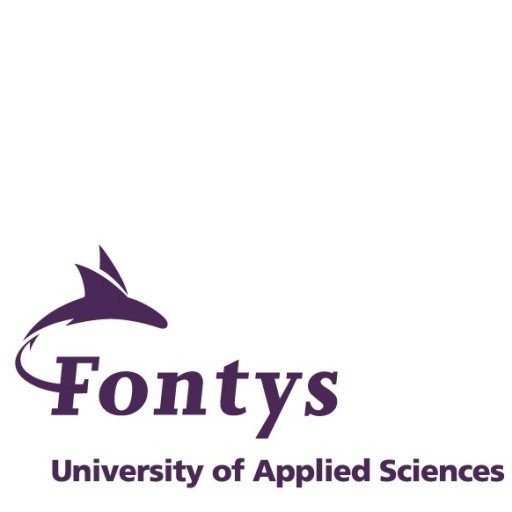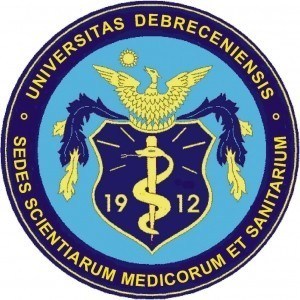Photos of university / #maastrichtuniversity
The Master's in Knowledge Engineering at Maastricht University is an innovative program designed to equip students with the essential skills and knowledge necessary to develop, implement, and manage intelligent systems and applications. This program focuses on the interdisciplinary field of artificial intelligence, combining computer science, data analysis, and cognitive science to prepare graduates for the rapidly evolving digital landscape. Throughout the course, students delve into core topics such as machine learning, reasoning under uncertainty, information retrieval, natural language processing, and knowledge representation. The program emphasizes both theoretical foundations and practical applications, ensuring graduates are well-equipped to address real-world challenges faced by industries including healthcare, finance, and technology.
At Maastricht University, the curriculum is structured with a focus on active learning, small-group projects, and collaboration with industry partners to enhance practical skills. Students learn to design intelligent systems that can mimic human decision-making processes and handle complex, large-scale data environments. They explore ethical considerations and societal impacts related to AI and knowledge engineering, fostering responsible innovation. The program also provides opportunities for specialization, allowing students to focus on areas such as data science or artificial intelligence governance.
Graduates of this program will be prepared for careers as data scientists, AI specialists, knowledge engineers, or research professionals in academia or industry. The university’s supportive academic environment, combined with its strong ties to the international business community, ensures that students gain valuable insights and professional networks during their studies. With the rapid growth of AI technology, a Master’s in Knowledge Engineering from Maastricht University offers a compelling pathway into a future-proof career, empowering students with the technical expertise and critical thinking skills necessary to drive technological innovation and address complex societal issues.
Knowledge Engineering at Maastricht University offers an innovative and comprehensive programme designed to equip students with the essential skills and expertise required to develop, evaluate, and implement intelligent information systems. This interdisciplinary programme combines elements of computer science, artificial intelligence, information retrieval, and data management to prepare students for the rapidly evolving field of knowledge-based systems. Throughout the programme, students will explore the fundamental theories and practical applications of knowledge representation, reasoning, and learning algorithms, enabling them to address complex problems in various domains such as healthcare, business, and technology. The curriculum emphasizes hands-on experience with cutting-edge tools and techniques, including semantic web technologies, machine learning, and natural language processing, ensuring graduates are well-prepared for careers in industry, research, or academia. Students will engage in project-based learning, working on real-world cases to develop their problem-solving and analytical skills. The programme also fosters interdisciplinary collaboration, encouraging students to work alongside experts from different fields to develop innovative solutions. In addition to technical knowledge, students will gain vital soft skills such as communication, teamwork, and project management, which are essential for successful careers in knowledge engineering. The programme's curriculum is designed with a strong emphasis on research and innovation, providing students with opportunities to contribute to current developments in artificial intelligence and knowledge systems. Graduates will be able to design intelligent systems that can automatically process and understand large volumes of information, making significant contributions to industries that rely on data-driven decision-making. With Maastricht University’s international and diverse academic environment, students will benefit from a global perspective and develop adaptable skills suitable for various international contexts. Upon completion, graduates will be prepared to pursue careers as knowledge engineers, data scientists, AI specialists, or continue their academic journey through master's or PhD programmes. The programme is tailored to meet the needs of a dynamic job market, ensuring that students gain the relevant skills and knowledge to succeed in the fast-changing landscape of information technology and artificial intelligence.
Admission requirements
Higher Level Mathematics
Other requirements
- aanvullend vak Student dient voldoende Wiskunde in het pakket te hebben. Voor Nederlandse studenten is dit minimaal Wiskunde B.
- aanvullend vak Higher Level Mathematics
- intake gesprek optional
The Knowledge Engineering Master's programme at Maastricht University offers diverse financing options to accommodate both domestic and international students. Tuition fees for EU/EEA students are fixed and amount to approximately €2,200 per year, whereas non-EU/EEA students pay higher tuition fees, around €16,000 per year. Prospective students can explore various funding opportunities, including scholarships provided directly by Maastricht University, government grants, and external funding sources. Maastricht University offers the Maastricht University Scholarship Programme, which includes several scholarships such as the Holland Scholarship, AMIF Scholarship, and fellowships for outstanding students, covering partial or full tuition fees. Additionally, students from the EU/EEA may be eligible for government student finance and loans depending on their country of residence. International students are encouraged to seek scholarships from their home countries, as many governments and private organizations offer funding for international education. The university's website provides detailed information on eligibility criteria, application procedures, and deadlines for each scholarship program. Besides scholarships, students can explore loan options, grants, or part-time work opportunities to finance their studies, subject to visa and work regulations. Maastricht University also collaborates with external organizations and companies for internship placements that sometimes include stipends or financial support. Students are advised to plan their finances early and consult the university's student services for personalized advice and assistance on funding strategies. Overall, the availability of financial aid depends on individual circumstances, nationality, and academic achievement, making thorough research and early application essential for securing funding for the Knowledge Engineering programme.
Knowledge Engineering at Maastricht University is an innovative master's program designed to prepare students for a career in designing, developing, and managing intelligent systems and knowledge-based applications. The program focuses on the intersection of computer science, artificial intelligence, and cognitive science, aiming to equip students with the theoretical foundations and practical skills necessary to create autonomous, reasoning systems capable of solving complex problems across various domains. Throughout the program, students engage with cutting-edge topics such as knowledge representation, automated reasoning, machine learning, natural language processing, and data management, enabling them to develop sophisticated solutions that can analyze, interpret, and act on large and complex data sets.
Curriculum components include core courses in knowledge engineering principles, formal logic, and AI methodologies, complemented by specialized electives tailored to emerging areas like semantic web technologies, big data analytics, and human-computer interaction. The program emphasizes a hands-on learning approach, featuring project-based assignments, laboratory work, and collaborations with industry partners, which enable students to apply their knowledge to real-world challenges.
Maastricht University provides a stimulating academic environment with a strong focus on small-scale, interactive learning and international collaboration. The program often attracts students from diverse backgrounds, fostering cross-cultural exchange and interdisciplinary perspectives essential for tackling global AI and knowledge management issues. Graduates of the program are well-positioned to pursue careers in academia, research institutions, technology consultancies, and innovative companies specializing in AI systems, data-driven decision-making, and intelligent automation. The program also offers opportunities for further research or doctoral studies for those interested in advancing the theoretical and technological frontiers of knowledge engineering.










